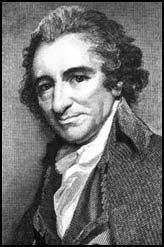
Return to North Glen or Reading List or Credo
Those who have the capacity for independent thought are often considered undesirable or even dangerous to established power systems. They are by definition somewhat difficult, if not impossible, to control, and the results of their actions are therefore unpredictable.

When an individual becomes a member of a political party, the result is usually that thoughtful creativity is replaced by acceptance of party dogma and policy. Alternatively, they may become a constant thorn in the side of the party elite, and as such they are invaluable in provoking the continual examination of accepted assumptions and puncturing complacency.
Often, such persons become 'de-selected.' In the best cases, they are re-elected as independents. An ideal legislative body would be largely composed of such 'independents', elected by their neighbours for an open-minded capacity to listen to and consider the views and interests of those whom they represent, and vote according to their own assessment of each issue. The present widespread practice of electing parties rather than persons does not favour this.
Several institutions in British government must cause amusement to foreign observers:
1. The existence of an 'official' opposition, complete with serviced accommodation and the presumed obligation to oppose. "Whatever they're for, we're agin' it!"
2. That party discipline is enforced by whipping. (public school carryover?)
3. That 'withdrawal of the whip' is a threat, rather than a coveted reward.
4. That residency within a constituency is not a requirement of candidacy.
It is said of Thomas Jefferson, the principal author of the Declaration of Independence (American UDI), that he was alarmed and distressed when, as soon as the nation was established, organised political parties began to emerge.
When matters which concern or interest us are under discussion, it is natural to form alliances with those who share aspects of our viewpoint or objectives, but when these are formalised into rigid policy frameworks, much of great value is lost:
1. The primary goal becomes the establishment or maintenance of a dominant position for the party.
2. Party discipline becomes more important than finding new solutions to new situations.
3. Policy, rather than being founded in conviction & principles, is manipulated to appeal to voters, while
4. The party is 'sold' as being more unified, more considerate, more efficient, than other parties.
5. The fewer parties involved, the more pronounced the shallow nature of the resulting discussion becomes.